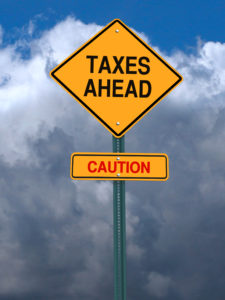Land Tax in 2019 is affecting increasing numbers of property owners. This may not be important to you if you have never received a Land Tax bill.
However, when the combined value of your Queensland properties reaches the tax-free threshold, your first land tax bill won’t be the highlight of your day!
If you are interested in the potential impact of land tax on your financial security, these brief comments may help.
Notices are being issued
Land Tax Assessment Notices for 2019 have been issued.
If you are expecting a notice and you haven’t received it, make sure that the OSR has your correct address. The Notice contains information as to how you can update your details online.
If the Notice has already been sent to the wrong address, you will need to telephone the OSR: 1300 300 734 (Australia) or +61 7 3179 2500 (overseas).
Is the Notice Correct?
You have one month to notify the OSR if there are any matters that you want to bring to their attention.
If you wish to make a formal objection, this must be lodged within 60 days.

Paying the Tax
The Notice gives you about 3 months to pay. After that, interest and other costs start accruing.
An extended payment option is available to assist your cashflow – but only if you register within 35 days of the date of the notice (not the date received).
The extended payment option allows you to pay the debt in 3 equal instalments, without incurring any interest or other costs. The Notice will specifiy the dates the instalments must be paid – the first due well before the due date in the notice. The second instalment must be paid by the due date, and the final instalment about 2 months after the due date.
Do you spend time outside Australia?
Where you spend at least 6 months of the year outside Australia, the OSR will classify you as an absentee. This is not good – and may be very expensive!
Does the OSR know when you leave Australia – and when you return? Yes – the Australian Customs and Border Protection Service share their information with the OSR!
As an absentee:
- the tax-free threshold for individuals is reduced from $600,000 to $350,000
- higher rates of tax are charged (see below)
- a 2% surcharge is payable in addition to the tax
These “penalties” apply even where your spouse and/or other family members live in the property as their home.

Rates for absentees
Total taxable value |
Rate of tax |
| $0 – $349,999 | Nil |
| $350,000 – $2,249,999 | $1,450 plus 1.7 cents for each $1 more than $350,000 |
| $2,250,000 – $4,999,999 | $33,750 plus 1.5 cents for each $1 more than $2,250,000 |
| $5,000,000 – $9,999,999 | $75,000 plus 2.0 cents for each $1 more than $5,000,000 |
| $10,000,000 or more | $175,000 plus 2.5 cents for each $1 more than $10,000,000 |
What is Taxable Value?
A reminder that the taxable value is not the market value, but rather what is called the Unimproved Capital Value (UCV). The UCV is determined by the Valuers General Department – and published in March every one to three years.
What can you do about it?
If you own the property solely in your name, do you have a spouse to whom you could transfer a share of the property? However, there may be unintended consequences which need to be considered before taking any action. You would also need to review your estate planning documents.
An example of what can be done where one person solely owns their home, is that a half-share can be transferred to their spouse without paying any transfer duty. The only costs are registration fees and legal fees.
You may want to consider transferring ownership of the property to a Family Trust, where you exclude yourself as a beneficiary of the trust. There are (as always) a number of conflicting & significant factors to consider – including transfer duty and capital gains tax. Despite this, it can still be useful in some specific and limited circumstances! As usual, any action would require a review of your estate planning.
Does your Family Trust own your home?
If your home is owned by your Family Trust, and all the beneficiaries of the Trust live in the home, we can submit an application to the OSR for the home to be excluded from future land tax assessments. As usual, we have to verify your eligibility.
OSR can ask for more
Receiving an assessment notice doesn’t prevent the OSR from demanding more tax from you at a later time. If the OSR discover a change in your circumstances, they may issue re-assessment notices for up to the previous 5 years.
Disclaimer: The above is to be considered as general education. This is not advice and it is not to be acted upon without advice from a qualified professional who understands your personal circumstances.
Copyright © 2019 Wockner Lawyers. All Rights Reserved. Contact Wockner Lawyers – [email protected]. This article may not be used without the prior written consent from the author. See below for more details…
DO YOU WANT TO USE THIS ARTICLE IN YOUR E-ZINE OR WEBSITE? You can, as long as you include this text copy in its entirety:
For assistance with your next Property and Conveyancing transaction, or your Wills and Estate Planning arrangements, contact Wockner Lawyers.
